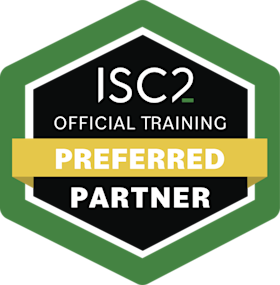Official ISC2 Online Self-Paced CISSP Training is a groundbreaking way to prep for certification that uses artificial intelligence to customise your learning journey. It pinpoints areas that require additional focus and guides you through your exam prep in a way that’s truly personalised.
Study smarter, not harder, with these key advantages:
Personalised instruction – Content, pace and difficulty adapt to your individual knowledge, learning speed and confidence level.
Enhanced engagement – Immediate feedback and dynamic content enable you to learn at an appropriate level.
Time savings – Training time is optimised by focusing on areas that require the most review.
Improved learning outcomes – The platform identifies areas requiring further review and provides targeted support to maximise your understanding of the content.
Certified Information Systems Security Professional (CISSP) training leverages the power of artificial intelligence, guiding students through a self-paced learning experience adapted to their unique needs. It covers the knowledge and skills for designing, developing, and managing the overall security posture of an organisation.
CISSP Online Self-Paced Training includes:
Self-paced online adaptive learning journey
Data-driven analytics dashboard for real-time feedback on learner progress
Robust search functionality to narrow topics
Pre- and post-course assessments
Knowledge checks and end-of-domain quizzes
Digital eTextbook
Interactive content
Domain-by-domain study sheets with key points
Email content support
Online interactive flash cards
Glossary of Terms
24/7/365 chat technical support (Support is provided directly via ISC2)
Please note: The exam is not included in the course fee but can be purchased separately. Please contact us for a quote.
ISC2 may require up to ten days to issue the self-paced material after it has been purchased.
Can’t see the video above? Click here to open it in a new screen.

